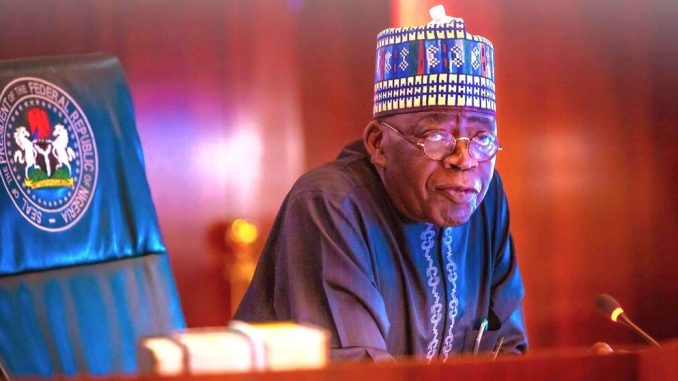
In a development that solidifies Nigeria’s position as a major maritime nation, the United Nations has officially approved the country’s bid to extend its continental shelf by 16,300 square kilometers.
This achievement, announced by President Bola Tinubu last week, is a testament to the unwavering commitment and scientific prowess of the Nigerian people, and a significant step towards unlocking the vast economic potential of the country’s maritime domain.
The journey to this landmark victory has been a long and arduous one, spanning over a decade of meticulous research, diplomatic negotiations, and persistent lobbying efforts.
We recall that it was former President Muhammadu Buhari who, in 2015, revitalized the project by establishing the High-Powered Presidential Committee (HPPC), a dedicated team of experts tasked with advancing Nigeria’s claims under the United Nations Convention on the Law of the Sea (UNCLOS).
Through years of painstaking geophysical, geological, and geographical studies, this team of scientists and diplomats meticulously built a case that solidified Nigeria’s legal rights over a vast expanse of seabed and subsoil beyond its traditional territorial waters.
Their efforts were not in vain, as the United Nations Commission on the Limits of the Continental Shelf (CLCS) ultimately granted Nigeria sovereignty over an area approximately five times the size of Lagos State.
This newly acquired territory, dubbed the “Golden Triangle” in the Gulf of Guinea, holds immense promise for Nigeria’s economic future.
Experts have hinted at the potential for hydrocarbons, gas, solid minerals, and a wide variety of sedentary species, further bolstering the country’s already significant energy and maritime resources.
However, as Professor Larry Awosika, a member of the HPPC, cautioned, sensitive data acquired during the surveys must be safeguarded to protect Nigeria’s interests and potentially monetize the information to recover project expenses.
In the considered opinion of this newspaper, the significance of this achievement cannot be overstated. By expanding its maritime boundaries, Nigeria has not only solidified its position as a major player in the global blue economy but has also secured a valuable asset for future generations.
The responsible exploitation of these newfound resources could catalyze economic growth, create employment opportunities, and generate revenue streams that could be channeled into critical areas such as infrastructure development, education, and healthcare.
Moreover, this triumph serves as a powerful reminder of the importance of diplomacy and international cooperation in resolving disputes and advancing shared interests.
Nigeria’s success was achieved through adherence to international law and constructive engagement with the United Nations and its member states.
This approach stands in stark contrast to the all-too-common resort to armed conflict over territorial disputes, a path that inevitably leads to loss of life, economic disruption, and long-lasting enmity.
President Tinubu’s words, commending the team for “gaining additional territory for the country without going to war,” ring true.
Nigeria has demonstrated that it is possible to resolve complex territorial issues through peaceful means, setting an example for other nations grappling with similar challenges.
As Nigeria prepares to capitalize on this newfound bounty, it is imperative that the government exercise prudence and foresight in its management of these resources.
Lessons must be learned from the mismanagement and environmental degradation that have plagued the oil-rich Niger Delta region, where the benefits of resource exploitation have been unequally distributed and the ecological consequences have been dire.
We strongly suggest that a comprehensive and sustainable development plan, centered on transparency, environmental stewardship, and equitable distribution of wealth, must be formulated.
This plan should prioritize the diversification of the economy, investing in renewable energy sources, and promoting sustainable fishing and maritime industries that can provide long-term economic stability and employment opportunities.
Furthermore, a portion of the revenue generated from these resources should be allocated towards addressing the pressing challenges faced by coastal communities, such as sea-level rise, coastal erosion, and marine pollution.
By investing in resilient infrastructure, climate adaptation measures, and environmental conservation efforts, Nigeria can ensure that the benefits of its maritime resources are enjoyed by present and future generations alike.
As the world grapples with the existential threat of climate change and the growing importance of the blue economy, Nigeria’s achievement serves as a beacon of hope and a reminder of the immense potential that lies beneath the waves.
With judicious stewardship, international cooperation, and a commitment to sustainable development, Nigeria can harness the power of its maritime domain to forge a prosperous and resilient future for its people.
This victory belongs not only to the dedicated team of experts who tirelessly pursued this endeavor but to every Nigerian.
As the country embarks on this new chapter, it is incumbent upon all stakeholders – government, civil society, and the private sector – to work in unison, ensuring that the fruits of this achievement are equitably shared and that the foundations are laid for a thriving, sustainable blue economy that will benefit generations to come.
Leave a Reply